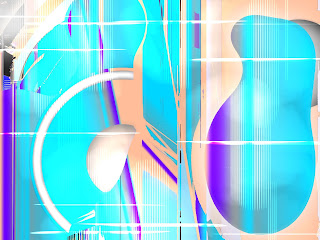Effective leadership is a good combination of principles, perceptions, personalities; substances & styles, character & charisma, a set of psychology, philosophy and methodology.
From the past to the present, strong leaders create momentum, lead transformative changes. Human history is an evolutionary journey to keep advancing economically, technologically, and sociologically.
Authenticity is the most fundamental, but challenging attribute for leadership: Becoming a leader is a process of becoming your true authentic self in all that you are today and "to be" in the future. Being authentic is defined as being genuine, discovering your strength and uniqueness, being yourself. Authentic leader fills a certain gap or multiple gaps in order to lead to the future confidently. Authenticity is perhaps the prerequisite for character development of leaders and defining their true purpose is a helpful instrument to guide themselves toward the tough journey of leadership.
Everyone is unique, the mind of every individual is different, the actual mental understanding and subsequent manifestations in action will be different for each individual. The defining qualities that will distinguish great leaders from the rest stem from the mindset level. As a matter of fact, leadership is a set of advanced mindsets and exemplified behaviors. Consider leadership authenticity to be a positive outcome of enlightened inspiration and informed motivation. Authenticity conveys uniqueness and enforces accountability. Being authentic means being true to that in every aspect: thinking, saying, and doing to enforce accountability, show integrity to make sound judgment, think and act consistently to lead change smoothly.
Authenticity is the most fundamental, but challenging attribute for leadership: Becoming a leader is a process of becoming your true authentic self in all that you are today and "to be" in the future. Being authentic is defined as being genuine, discovering your strength and uniqueness, being yourself. Authentic leader fills a certain gap or multiple gaps in order to lead to the future confidently. Authenticity is perhaps the prerequisite for character development of leaders and defining their true purpose is a helpful instrument to guide themselves toward the tough journey of leadership.
Everyone is unique, the mind of every individual is different, the actual mental understanding and subsequent manifestations in action will be different for each individual. The defining qualities that will distinguish great leaders from the rest stem from the mindset level. As a matter of fact, leadership is a set of advanced mindsets and exemplified behaviors. Consider leadership authenticity to be a positive outcome of enlightened inspiration and informed motivation. Authenticity conveys uniqueness and enforces accountability. Being authentic means being true to that in every aspect: thinking, saying, and doing to enforce accountability, show integrity to make sound judgment, think and act consistently to lead change smoothly.
Interdisciplinary leaders are in demand to orchestrate multidimensional changes, and harmonize human society: Due to the exponential growth of information and frequent disruptions, leadership becomes more complex. To move forward from a knowledge economy to a creative economy, keep recirculating imagination and recycling knowledge, interdisciplinary work is almost the order of the day in which contrasting ideas, views will surface, innovative works will produce great results. Interdisciplinary leaders demonstrate learning agility, have a unique insight to bridge the multitude of gaps, close blind spots in effective decision-making, and build heterogeneous teams to harness innovation.
The beauty of the digital landscape is fresh insight into the business. The answer from yesterday is not as critical as the questions about the future. It’s a well-known fact that there is no perfect leader, but the progressive one is on their way to be more effective. The maturity of digital leadership depends on a number of factors such as the purpose to lead, interdisciplinary knowledge and experience, etc, to create more ideas, fresh perspectives, challenge common beliefs or conventional wisdom, etc, for leading forward with cautious optimism.
Innovative leaders with open-mindedness can cultivate an innovative working climate to generate creative energy: In the dynamic digital business ecosystem in which change is significantly speeding up, business leaders couldn’t predict the future with a certain degree of accuracy, “keeping the lights on” only is simply not enough for the long term business thriving in face of frequent disruptions and fierce competitions. Looking deeply into the historical patterns and emerging trends can have a profound effect on where you go, and how you get there. Innovations happen because of specific business needs. Unique challenges become more apparent as we push the limits of the available technology, which pushes us to find a solution to the problem at hand. Organizations need to keep experimenting, and exploring innovation with clear goals and continuous practices. Innovation leaders make influence through openness, being able to seek ways and means of adjusting their perspective and those around them to nurture a creative environment, encourage alternative ways to solve problems and manage a balanced innovation portfolio.
As the pervasiveness of an organization's digitization journey increases, effective leadership is a good combination of principles, perceptions, personalities; substances & styles, character &charisma, a set of psychology, philosophy and methodology. The leaders need to observe, perceive, and pay attention to the myriad of internal, external, national or global forces that define and impact business these days. It is imperative that "leadership" needs to be re-imagined, explored, and understood thoroughly to make a significant influence. It takes time to build core leadership competency and maintain a consistent reputation.












































0 comments:
Post a Comment